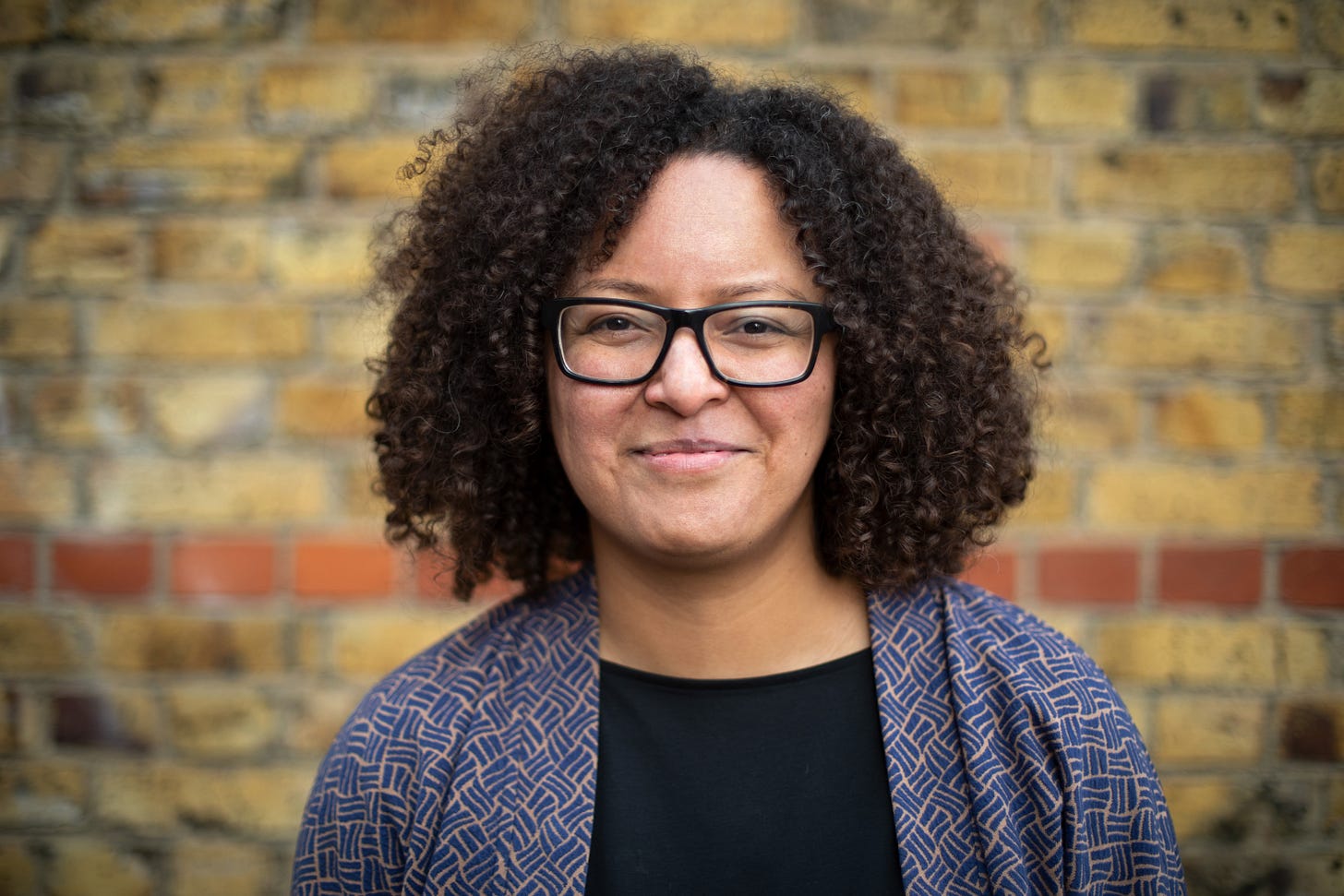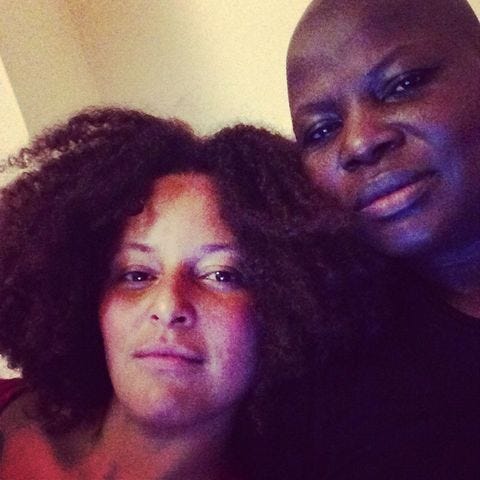Mandu Reid: “My starting point was belonging rather than a deficit”
The WEP leader on language, location and breaking deadlocks
Hi, welcome back to Mixed Messages! This week, I’m speaking to the leader of the Women’s Equality Party, Mandu Reid. Mandu is of Malawian and white British heritage, having grown up in Eswatini, formerly known as Swaziland, during apartheid. As a mixed person, it goes without saying that she was in a complex position. I was excited to understand more about how Mandu’s identity has shifted over time, especially after a move to the UK, and how her mixed perspective has informed her political career. Read on to find out.
How do you define your ethnicity?
My mother is Black, from Malawi, and my father is white. I grew up in what used to be called Swaziland, which borders South Africa, in the twilight years of apartheid. The first way I had to self-identify was as coloured, because that’s a distinct terminology in South Africa to describe people of Black and white parentage
When I moved to the UK during my teenage years, I quickly understood that coloured wasn’t interpreted in the same way. I labelled myself as either mixed-race or Black, and that’s stuck. For a time I called myself afro-Saxon, as a nod to my African heritage and British heritage, but nobody knew what I was talking about, so that didn’t last. Identifying as Black also has a political connotation, especially in this country.
There’s a Kenyan word, pointi, which means point five. It’s not inherently negative, more a descriptor, but can be a pejorative. I was referred to as pointi in Kenya, and there’s something about being half that takes away from the completeness of who you are.
Does how you’re perceived change based on the country you’re in?
Yes – in the company of people from Mozambique, Angola and Brazil, I’m mulata. In East Africa, I’m mzungu, which means white person. My dark-skinned mother is called mzungu too, to signal that she’s a foreigner. She finds that problematic.
It’s interesting to be assumed white, or as a foreigner, in those contexts. I don’t think that I’ve ever been perceived as a local except for when I was in Brazil. There’s a word in Arabic, Urdu and Swahili which means traveller, musafir, which I love. In Turkish, musafir means guest. The idea of never being a local has a lot of resonance with my mixed identity.
In Devon in the early ‘90s, I was called half-caste or a paki – just any old thing to signal that I wasn’t welcome.
Did growing up in Eswatini affect how you saw your mixed identity??
I think that even though I might still be categorised as a foreigner in certain parts of Africa, there’s an anchor and sense of belonging from being part of a majority culture. That shaped my sense of self, and allowed me to talk about race with other African friends on the front foot, rather than in the UK where we talk about injustice and institutional racism and are on the back foot. It creates a feeling of pride, rather than having to fight for your place in society. I feel grateful that I’ve grown up in an environment where my starting point is belonging rather than a deficit.
Did you look up to any mixed celebrities growing up?
I used to be obsessed with Sade – still am. She was a superstar without any scandal. I was so relieved at that because I was used to seeing people of colour in the limelight for negative reasons. That made me feel secure. When you’re a teenager, you’re looking for people in the public eye to be appreciated and celebrated, not critiqued and denigrated.
In my young adulthood, I found Zadie Smith. I read White Teeth as soon as it came out, and really connected with the main character. It resonated on so many different levels.
As an adult, I was taken by surprise at how emotional I felt seeing Kamala Harris take the oath. Representation is important intellectually, but emotionally too.
How do you think the mixed conversation needs to develop?
It’s important to embrace complexity. Particularly in this polarised culture, where we oversimplify everything and create division, divisiveness and demonisation when we actually need the opposite. In a way, I think those of us with mixed heritage could use our experiences to provide some leadership out of this deadlock. We’ve had to navigate differences from day one, and the world needs people skilled in that.
How has being mixed informed your career?
Having a Black mother and white father, growing up against Apartheid... you’re forced to navigate complexity. That’s shaped the way I deal with conflict. I have strong instincts in trying to make sense of different opinions. I’ve seen first-hand how dialogue can change minds – my white grandmother would write long letters to my father talking about how swans and blackbirds shouldn’t mate, but her values shifted over time.
By nature, I’m very curious and open-minded, so couple the two together and you get somebody who’s prepared to hold the tension to find solutions and consensus.
What’s the best thing about being mixed?
It’s made me versatile. I’m socially, culturally and emotionally nimble. I’m adaptable and can get on different wavelengths very easily. I wouldn’t have had the advantage of those traits had I been monoracial.
Can you define your mixed identity in one word?
Rich.
Next week, I’ll be talking to author Anjali Enjeti. Subscribe to get Mixed Messages in your inbox on Monday.
Enjoy Mixed Messages? Support me on Ko-Fi so I can continue to grow this newsletter! Your donations, which can start from £3, help me pay for the transcription software needed to keep this newsletter weekly.
Mixed Messages is a weekly exploration of the mixed-race experience, from me, Isabella Silvers. My mom is Punjabi Indian (by way of East Africa) and my dad is White British, but finding my place between these two cultures hasn’t always been easy. That’s why I started Mixed Messages, where each week I’ll speak to a prominent mixed voice to delve into what it really feels like to be mixed.







